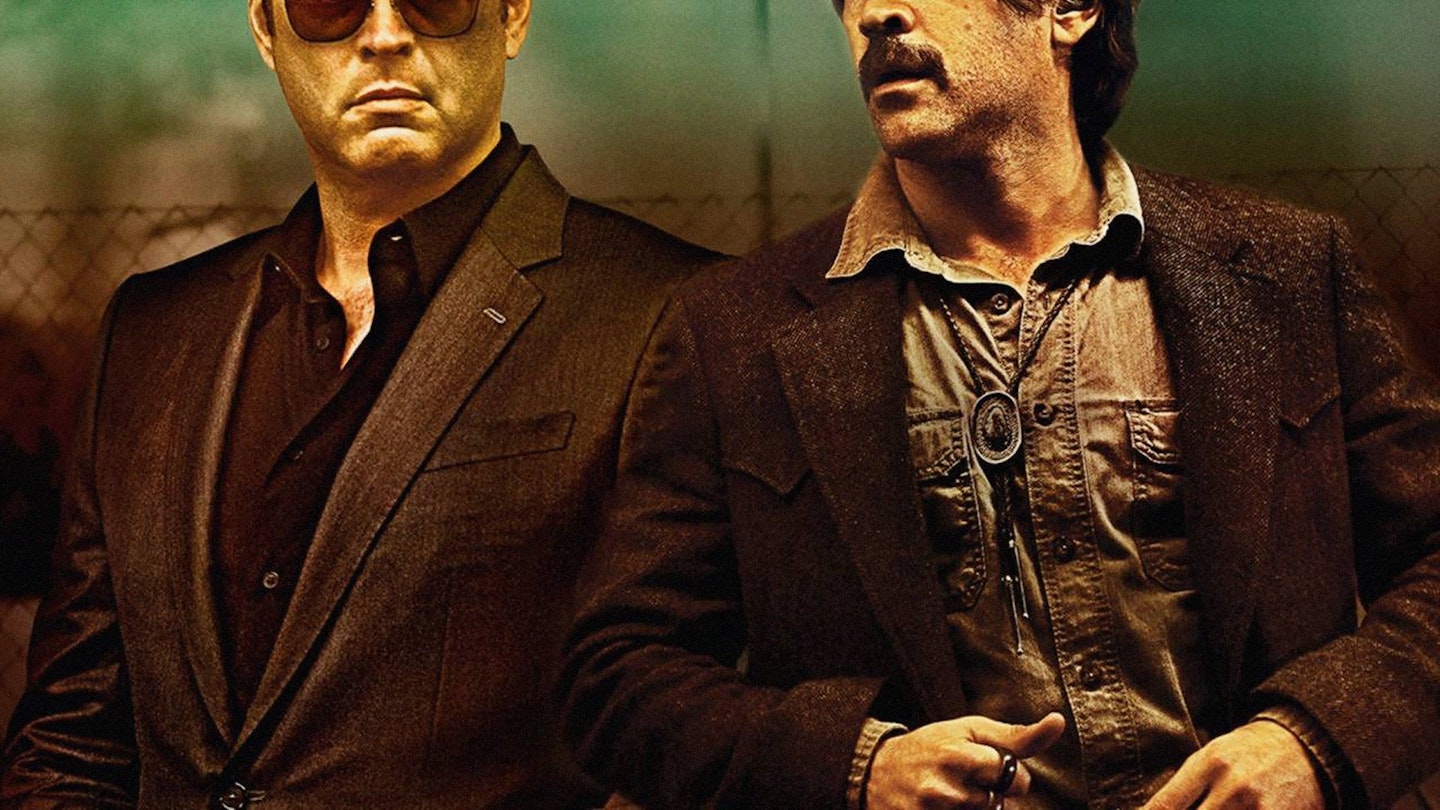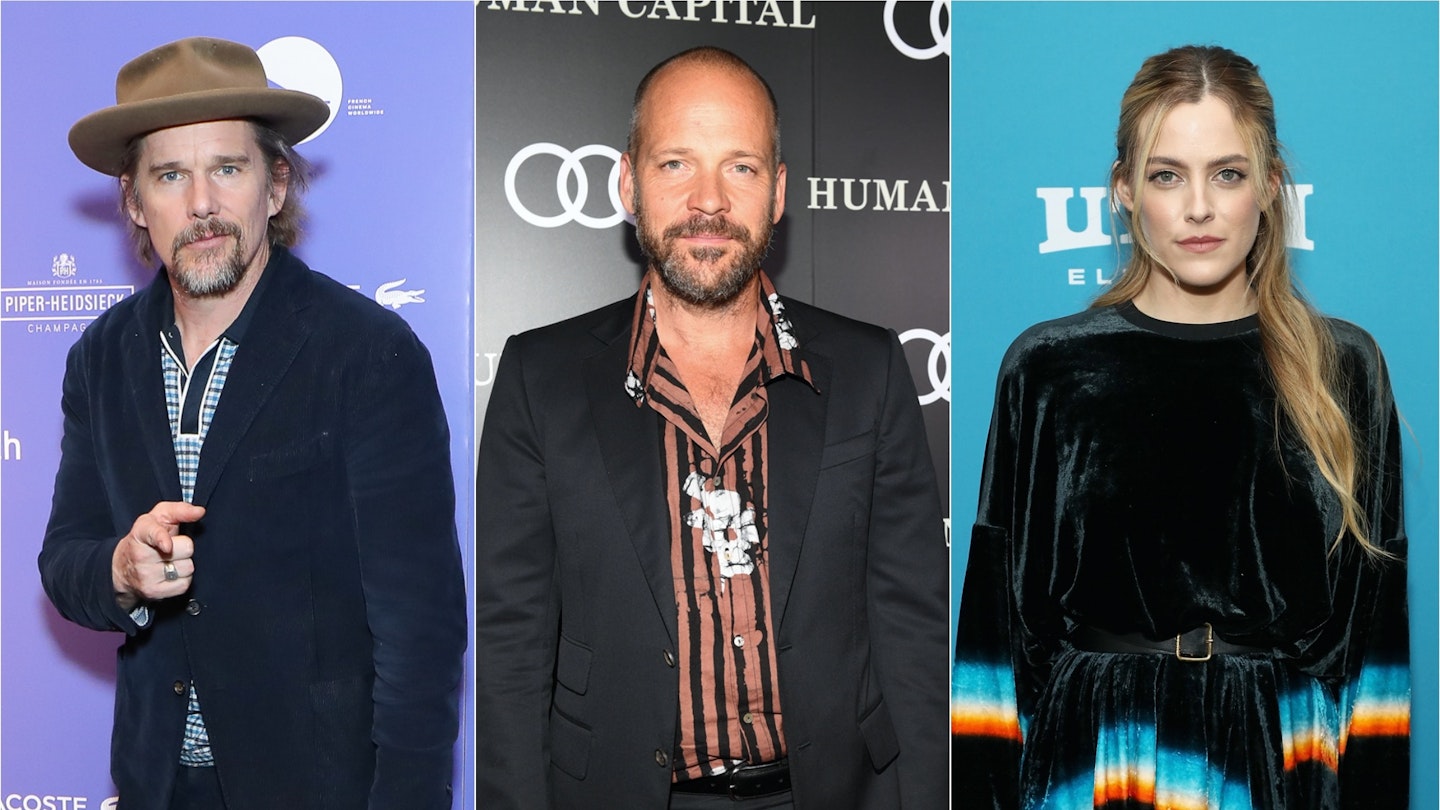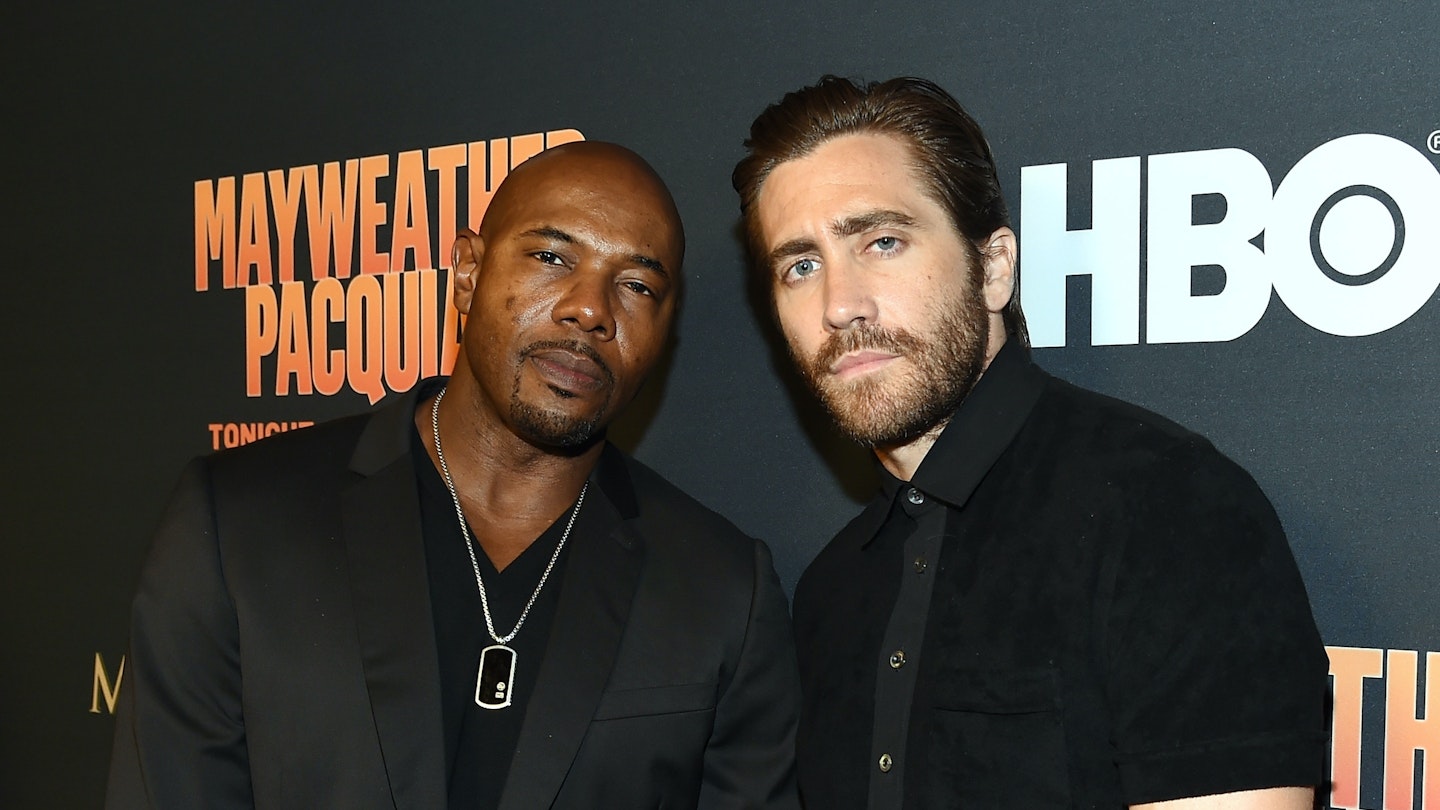"There were other times I thought I was mainlining the secret truth of the universe. By the standards of Detective Rust Cohles arcane and seldom cheery pronouncements, this counts as idle chitchat. Cohle, the HBO phase of Matthew McConaugheys extraordinary purple patch, has got this whole post-rational prophet vibe going down, a man of deep and curdled thought riffing on Nietzsche, Poe, Lovecraft and oddball, deep-Google mystical brooders like Thomas Ligotti or neo-Darwinian, empathy-is-extinction shaman-anthropologist Carlos Castaneda. A handful of the many provocative sources Louisiana-born series mastermind Nic Pizzolatto mainlined to concoct his sprawling series and subversive hero, every episode of which has been directed with miserablist grandeur by Cary Fukunaga.
So while on a superficial level it is a classic murder hunt, CSI Southern Comfort this is not. Columbo rarely favoured the term ontological. Its a good gag. For all its graveyard cleverness, True Detective is Seven where John Doe is one of the cops. Cohle talks fluent serial killer. How far you are willing to accompany True Detective down its dark and dusty Louisiana roads will depend on how much you swallow Cohles potty existentialism. Which goes for the series as a whole: superbly performed, sharply written, and set in that eerie Southern paradox of starkly beautiful swampland.
Its an alien world (refineries jostling with burnt-out churches and meth shops on the spirit-levelled horizon) populated with shifty preachers and scumbag, meth-cooking bikers knee-deep in ritualistic killing, slavery and all that is diabolical under the sun. But boy, is it far-fetched.
Lest youve been holed up beneath a rock or on a Twitter hiatus for months, youll know that Cohle is one of two mismatched Louisiana detectives in 1996 the sense and sensibility of self-destructive alcoholics on the trail of a pagan serial killer who clads his victims in antler horns and decorates the scene with mystical wooden doodads. The strange, elliptical plot, often lurking in the background of the cops edgy lives, keeps dropping mentions to a Yellow King like the ultimate cryptic tease for the big-brained, über-tortured Cohle. His partner is Marty Hart (Woody Harrelson), a gut-led, plenty-exasperated old-school asshole. Naturally, theyll jut chins, trade punches, and maintain a fascinating dependency as the case worms on for eight gripping episodes. Hart might be the more interesting ingredient. Harrelson brings striking reality to this family man whose moral compass cant hold true. He is a man confounded by the horrors he confronts yet happy to let his marriage disintegrate as he floozies around a man for whom the notion of right cant quite stay in focus. The portrayal of the women around them is more questionable, all these shattered wives, affairs, victims or gyrating bodies in the obligatory witness in a strip-joint scene. The show doesnt entirely manage to shake off cliché.
So this appears the old game, only played with greater verve and self-confidence. The armadillo-creep of the story is punctuated by surges of supercharged violence, including a now famed (if excitable) six-minute tracking shot in and about a stash house that out-Scorseses The Wire. But Pizzolatto is about more than hip style. He sets out to
rewire his genre. Events play in flashback: a story constructed from two separate interviews stroke interrogations taking place in 2012 when the cops circumstances Cohles especially have radically altered. A smart-enough trick, but Pizzolatto goes one further, flipping the concept of the unreliable narrator on its head. What we hear (often as voice-over) is riddled with misdirection, half-truths and flat-out lies. What we see is the truth: the facts, including cover-ups and the almighty mess Cohle and Hart made of the case, which may yet be unsolved. Then Pizzolatto slips out of his genre entirely. There is something close to horror going on here, a series that will continue with new stars and new cases (rumours suggest Brad Pitt), melding modern crime with a Southern Gothic-cum-Cthulhu atmosphere of abstract evil (boil down the moonshine and its True Blood devoid of camp).
T Bone Burnett, who layers the already humid ambiance with snarls and shivers of Goth-bayou kook rock, read the script as if it was a dark novel. For all the talk of this golden age of television, of which True Detective is supposedly so emblematic, this is less television than an epic movie told at luxuriant pace.


